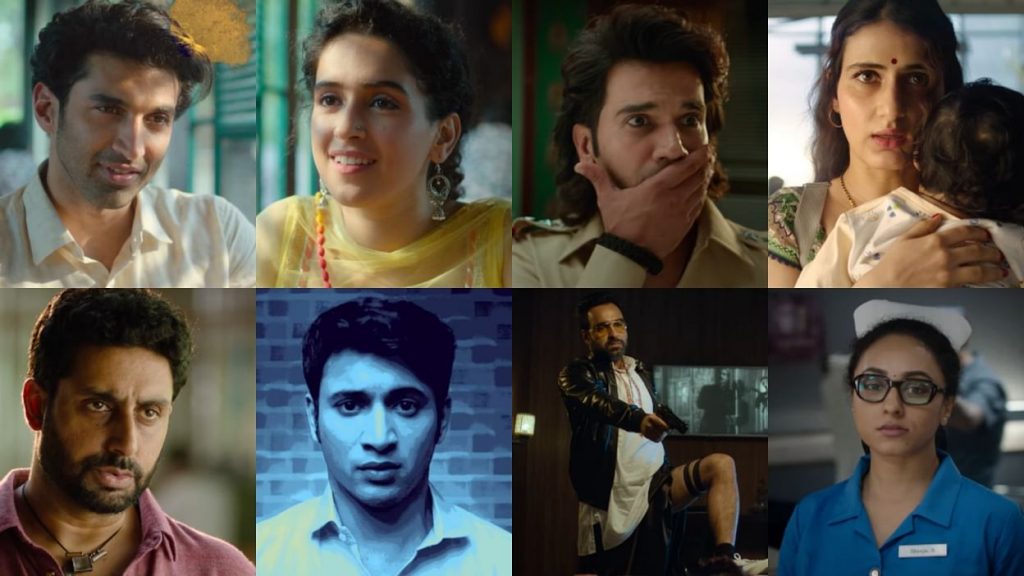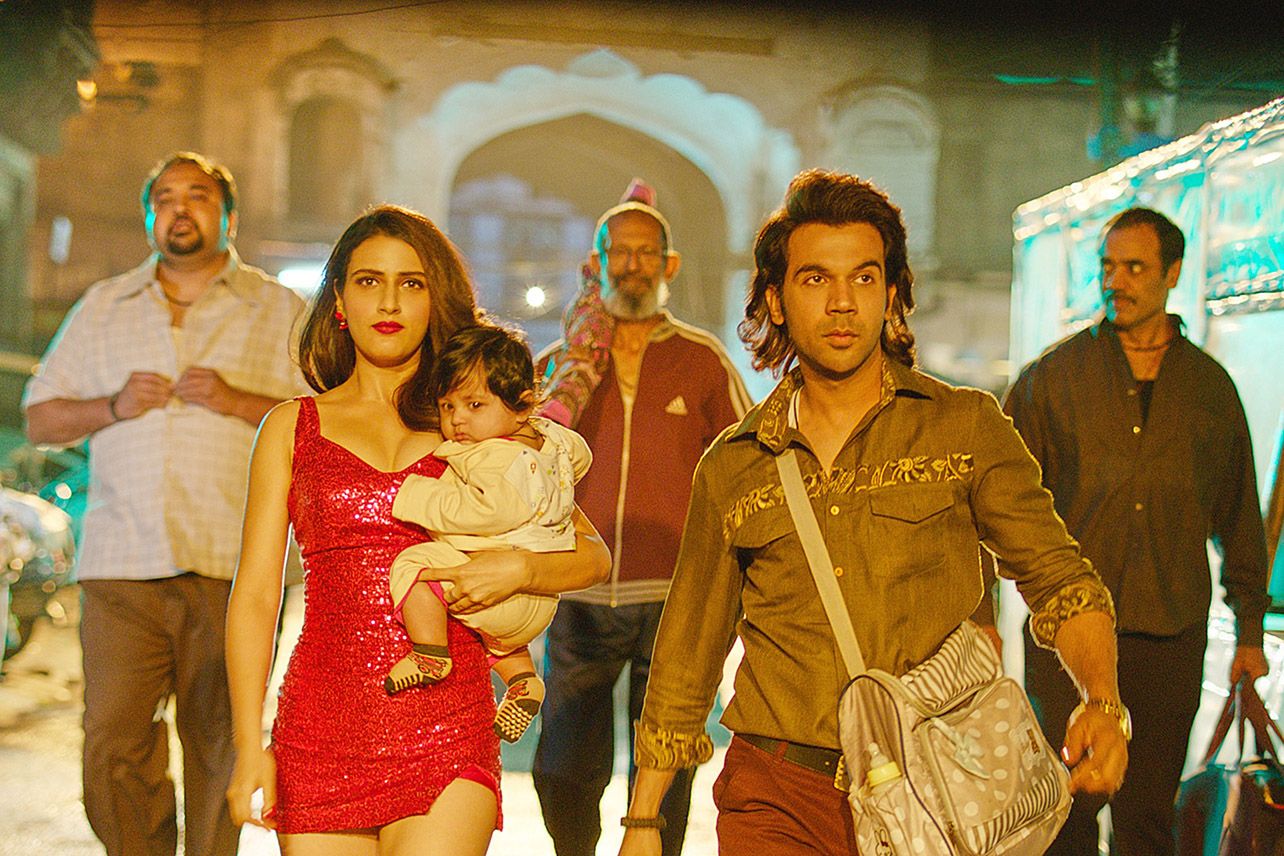Ludo has all the hallmarks of a signature Anurag Basu production: loud color palettes, a almost whimsical brand of dark comedy and multiple intersecting narratives. This is Basu’s first film after Jagga Jasoos, which met mixed reactions. Over the course of two and a half hours, a wild, winding narrative unfolds, playing out like an elaborately laid out depiction of chaos theory and Newton’s Third Law in story form.
At the beginning of the film, Sattu Bhai (Pankaj Tripathi) bursts into a man’s bathroom with theatrical swagger and shoots him, promising him ‘a fresh start’ in his next life. He kidnaps the only witness to the crime, a homeless retail worker named Rahul (Rohit Suresh Saraf) and sets off for his home. On the way to his den in Ranchi, Sattu Bhai stops by a concerned housewife after abducting her husband, telling her to tell her estranged ex-husband (and Sattu Bhai’s former right-hand man) Bittu (Abhishek Bacchan) to meet him. Bittu, on the other hand, has to take care of a little girl (Inayat Verma) who stages her own kidnapping to get attention from her parents.
Meanwhile, ventriloquist Akash (Aditya Roy Kapur) meets with Shruti, a woman he hooked up with multiple times who’s a few days away from being married to a rich heir to a business empire. Somehow, a video of their intimate activities has gone viral, and they have to figure out a way to bring it down before her fiance learns about it. There is also Pinky (Fatima Sana Sheikh) who goes to her friend, Aloo (Rajkumar Rao) for help with exonerating her husband, who has been charged with murder. Lastly, there is Sheeja Thomas (Pearle Maaney) a South Indian nurse who encounters Rahul and Sattu after an unfortunate accident and stumbles upon a stolen fortune.
Each of the main four stories are depicted using the four colours of the Ludo squares.
Bittu’s story is painted in red, representing his rage. Akash and Shruti’s story is tinged with yellow; Aaloo and Pinky’s segments are rendered in green and Rahul and Sheeja’s innocent romance is colored blue. These stories are anchored by two enigmatic men playing ludo, with one of them portrayed by the director himself.

The performances from the ensemble cast are mostly solid, with Pankaj Tripathi clearly having a lot of fun portraying a witty, badass gangster. Fatima Sana Sheikh also makes the best use of what could have been a limited role. Abishek Bacchan is more than competent as the quiet, tormented Bittu. The two romances in the film are subtly different: Akash and Sanya have that familiarity that comes from being around someone for a while. Rahul and Sheeja, on the other hand, are strangers discovering each other, and Rahul, for his part, is much more shy than Akash is. The soundtrack, including the classic song O Betaji, sets the atmosphere perfectly.
The chaotic nature of the film’s multiple narratives sometimes work against it. Characters keep on bumping into each other randomly in such a way that you have to wonder if they have giant magnets that keep drawing them to each other. Although the film seems to breeze by its runtime, the middle portion sags slightly. What saves the film, however, is how the blend of absurdity and whimsicalness keeps the momentum from petering out. This is a black comedy in the way only Anurag Basu can make it, although the aforementioned whimsy does bring to mind films like Rajkumar Santoshi’s Ajab Prem ki Gajab Kahani.
Ludo is entertaining from start to finish, and by the time it ends, it makes a strong argument for why Anurag Basu’s unique voice and humor are so important for Bollywood.
The film ends on a happy note, even for characters who were apparently done for. It’s no magnum opus, but the strong ensemble cast and the chaotic energy of the narrative will keep you glued to the screen for the most part.



























